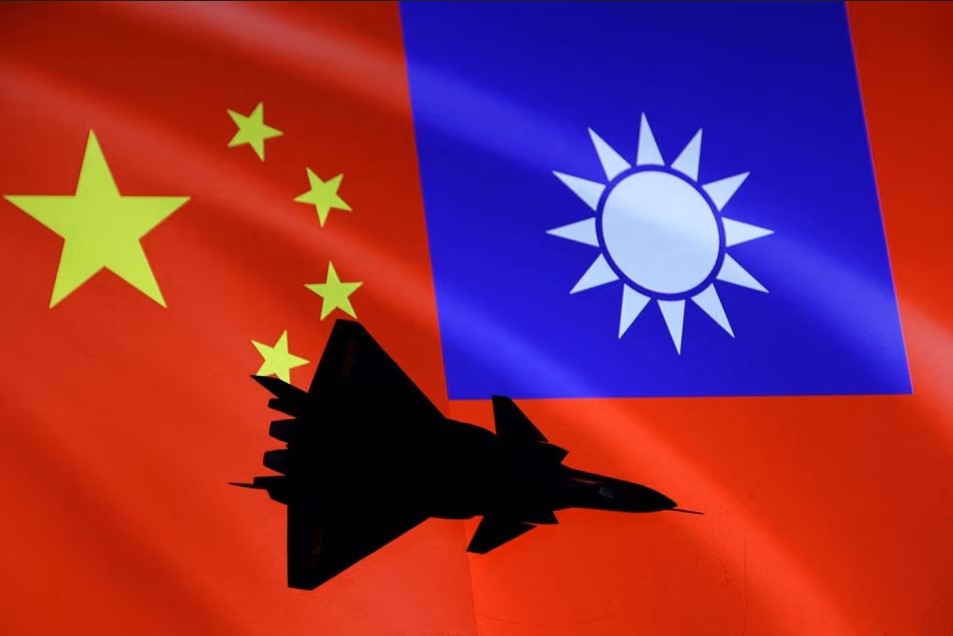Chinese military flights near Taiwan peaked last month. On one September day, PLAN aircraft entered Taiwan’s Air Defense Identification Zone over 100 times. As China’s military intimidation of the self-governing island escalates, U.S. backing is more critical than ever.

Office of the President Taipei, Taiwan (Source: The Federalist)
Reunification of Beijing with Taiwan
The U.S. must prevent China from invading Taiwan and dominating the world’s largest market zone. Not only is Taiwan part of an obscure global war between democracies and autocracies, but losing it to China would harm American security and economy. Taiwan, known as “the world’s most dangerous flashpoint,” makes headlines often. Under Chinese Communist Party leader Xi Jinping, China’s rhetoric and military intimidation methods toward the island have escalated, alarming Washington and its regional allies.
In 2021, Indo-Pacific Command (INDOPACOM) chief Admiral Phil Davidson warned that the PRC will threaten Taiwan “in the next six years.” Last year, Secretary of State Antony Blinken bemoaned that “Beijing is determined to pursue reunification with Taiwan on a much faster timeline than expected. China’s language and actions have grown more aggressive, even without an invasion schedule. It has held live-fire missile tests, military exercises, and a pretend blockade of Taiwan using warships in recent years. Beijing has imposed harsh economic restrictions on Taiwan, reducing the number of countries that recognize it from 22 to 13.
We know why the CCP values Taiwan. For instance, the party has linked its legitimacy and national narrative to island “reunification” aspirations. Taiwan’s success as a democracy also disproves the CCP’s claim that Chinese people are unfit for democracy. Finally, the party regards Taiwan’s de facto independence as a bitter reminder of China’s “century of humiliation.” It presents “reunification” as a crucial stage in China’s national rejuvenation, a project the party believes will restore China to its rightful place as Asia’s hegemon and the world’s most powerful nation. Taiwan’s security is important to the U.S. The island is crucial to preventing China from dominating global supply lines and maritime trading routes. The integrity of America’s First Island Chain military plan and a coalition of Indo-Pacific capitals resisting China’s imperial ambitions depend on it.
READ ALSO: China Might Use TikTok Data Against US
Consequences of the Chinese Invasion of Taiwan
A Chinese invasion of Taiwan would devastate the U.S. economy. American workers would suffer significant income and employment losses. Taiwan is Asia’s fifth-largest economy and a top-10 U.S. trading partner. Most crucially, Taiwan makes 90% of the world’s most advanced semiconductors. These tiny chips are essential to practically every electronic system in the U.S., from smartphones and laptops to fighter jets. Without them, the economy would collapse. The U.S. needs to strengthen domestic manufacturing and pro-growth measures to encourage investment in this key sector to improve supply-chain resilience over time. The global supply of advanced semiconductors will depend on Taiwan for the foreseeable future, and any confrontation across the Taiwan Strait would interrupt it. Worse, if China controlled Taiwan’s semiconductor industry, Beijing would have considerable coercive power over the U.S.
Taiwan is a critical link in the “first island chain” of military bases from Japan to Indonesia. Beijing will gain easy access to the Western Pacific and be better positioned to employ military force against Japan or the Philippines if it conquers Taiwan. This is important because America is obligated to defend both allies and because Beijing might more easily pressure regional cities. It would also heighten the Chinese military’s threat to Guam, Hawaii, and other Pacific U.S. territories, partners, and personnel. Around the Indo-Pacific, states expect the US to safeguard Taiwan from China. If China can seize Taiwan, it will send a message to Asia: “You’re on your own.” Other nations may be more likely to snuggle up to China if they lose confidence in America’s desire or ability to defend them from China’s fury.
This would be devastating because the U.S. and its allies must work together to prevent China from controlling the Indo-Pacific. Only the U.S. can lead this endeavor, but it cannot protect against China’s imperial ambitions. Therefore, America’s Asian partners and allies must also step up, notably by strengthening their defenses and working together to discourage and fight against Chinese aggression.
READ ALSO: US Administration Vulnerability on China’s Aggression Espionage

















































